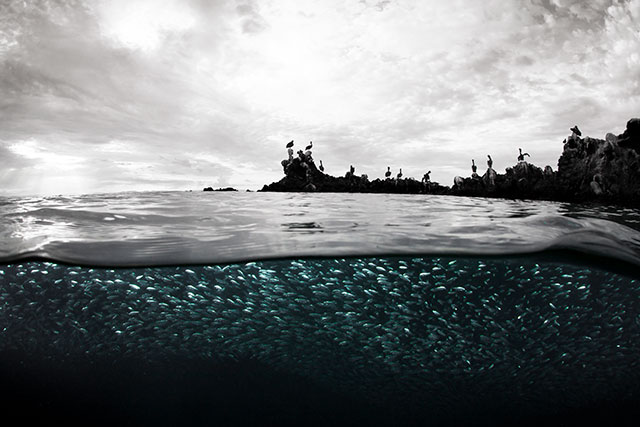
The recently published Biological Impacts of Ocean Acidification report is an eight-year-long study by more than 250 scientists investigating the impact of increasingly acidic oceans on sea life.
The chemistry of oceans has been changed by anthropogenic climate disruption (ACD), as the oceans absorb carbon dioxide humans are emitting into the atmosphere. Carbon dioxide produces carbonic acid, which lowers the pH of seawater.
To see more stories like this, visit “Planet or Profit?”
The study is a product of the BIOACID project, which is based in Germany.
The research shows that all sea life will be affected by the increasing acidification. Just one example: The numbers of baby cod that grow into full adulthood could fall anywhere from one-quarter to just one-twelfth of today’s numbers.
Twenty-Five Percent Increase in Ocean Acidity
The BIOACID project shows that since the dawn of the Industrial Revolution, the pH of the surface waters of Earth’s oceans has dropped from 8.2 to 8.1.
While this may sound like a miniscule amount of change, it is a stunning 26 percent increase in acidity.
Ulf Riebesell from the GEOMAR Helmholtz Centre for Ocean Research in Kiel, Germany is the lead author of the recently released study, and a global authority on the topic of ocean acidification. He explains that various species are affected differently by acidification — and those effects can have a rippling impact.
Riebesell told the BBC, “Warm-water corals are generally more sensitive [to acidification] than cold-water corals. Clams and snails are more sensitive than crustaceans.” He added that “even if an organism isn’t directly harmed by acidification it may be affected indirectly through changes in its habitat or changes in the food web.”
Given that more than one billion people rely on food from warm-water coral reefs alone, humans will obviously be impacted heavily as acidification progresses.
Sea life has been in trouble for a long time, due to overfishing, pollution and ACD impacts.
Global fish stocks are in decline, as 85 percent of them are either over-exploited, depleted, fully exploited or in recovery from exploitation.
Large areas of the seabed in the North Sea and the Mediterranean have long since resembled deserts, and 90 percent of all large fish are already gone from the oceans.
Acidification as a Kill Mechanism
The worst global mass extinction event thus far was the Permian Mass Extinction event that took place 252 million years ago.
That event wiped out more than 95 percent of all life on Earth. It was triggered by a dramatic increase of CO2 in the atmosphere, which was absorbed by the oceans, which subsequently acidified and acted as the primary kill mechanism for the event.
Another recently released study, “Thresholds of Catastrophe in the Earth System,” published in the prestigious journal Science Advances, showed that if humans continue to add CO2 to the atmosphere and oceans, a global mass extinction event could be triggered by 2100.
Many scientists believe we are already in the sixth mass extinction event, primarily triggered by human CO2 emissions. Several peer-reviewed scientific studies agree.
Join us in defending the truth before it’s too late
The future of independent journalism is uncertain, and the consequences of losing it are too grave to ignore. To ensure Truthout remains safe, strong, and free, we need to raise $44,000 in the next 6 days. Every dollar raised goes directly toward the costs of producing news you can trust.
Please give what you can — because by supporting us with a tax-deductible donation, you’re not just preserving a source of news, you’re helping to safeguard what’s left of our democracy.